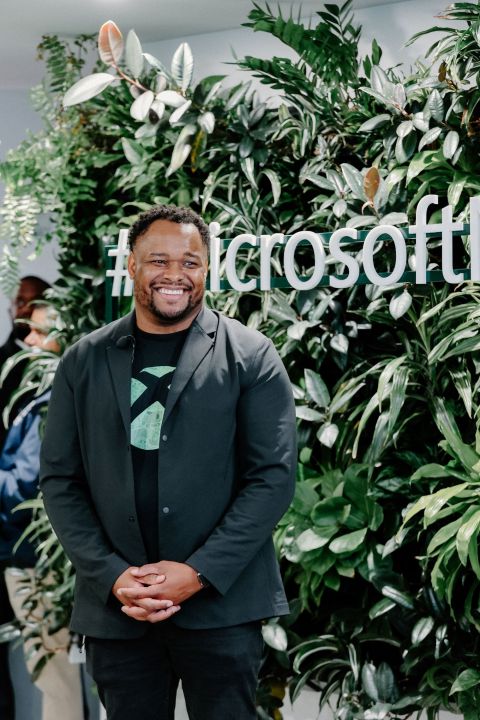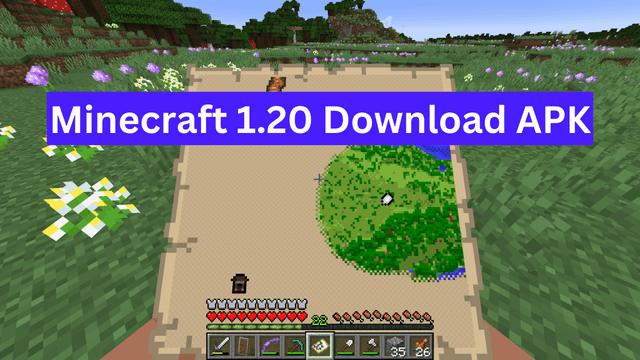As you can see, Xbox may be a corporate brand, but it has been a surprisingly important platform for independent developers. This harkens back to the old days of Xbox Live Arcade, when small developers were given a place to easily publish their projects on the console. Rather than move away from those days, Xbox has doubled down on its relationship with indies over the past few years through initiatives like ID@Xbox and the Developer Acceleration Program, which help underrepresented developers get their games out. Designed to help.
Over the past few months, the brand has been on a global tour to reach out directly to small developers and bring them onto Xbox. The effort will take the company to New York City on November 18, where Xbox leadership will talk to local developers and students about how to pitch their programs (the event will also feature a suspiciously timed speech from New York City Mayor Eric Adams). FBI investigation of his campaign funds). It’s clear that Microsoft is investing a lot of time and money in signing deals with smaller developers, but why put in the effort when it can comfortably thrive by publishing major titles through acquired publishers like Activision Blizzard and Bethesda. could?
To answer that question, I sat down with James Lewis, head of the ID@Xbox developer acceleration program, at the event. During our conversation about Xbox’s history with indies and the independent landscape at large, Lewis stressed the importance of supporting small developers. It’s not just about making money, but about creating a more sustainable future for studios, who need the first effort to prove what they would be able to do with more resources.
Lewis tells , “In my mind, we always need to be aware of who is most vulnerable out there and whether we are working to make sure they also have opportunities for success. “
supporting innovation
If you’ve paid close attention to the Xbox brand over the past decade, you may have noticed that indie games have become more central to the company’s mission. While a lot of attention goes major sports like Starfield, Xbox regularly uses indies to fill the gaps between major releases, keeping Game Pass stocked with a steady supply of new releases. This is made possible by ID@Xbox, which was launched in 2014. This program is designed to help smaller developers publish their titles on Xbox by providing tools and support to help reduce friction. This is an important task for Lewis when it comes to moving the industry forward.
“To me, independent developers represent innovation in the industry,” says Lewis. “There is technological innovation and things like that, but then there is also innovation in representation and storytelling. And I feel like what I’ve seen is that a lot of our independent developers can take risks to tell stories that you haven’t seen before… I can see some other teams not wanting to try that story, but independent “Developers are telling stories that matter to them and reaching more gamers.”

ID@Xbox has been a key part of Xbox’s strategy for nearly a decade now. The banner has currently shipped over 3,000 games from approximately 5,000 partners. Although this is impressive, Lewis and the team still felt there was more work to do to further Xbox’s missions. When it comes to diversity, the company needs to put its money where its mouth is.
“In 2019, we asked how we could ensure that underrepresented developers could also feel empowered to bring their games to the platform,” says Lewis. “We follow the mantra that if you don’t intentionally include, you will unintentionally exclude. So, how can we be very intentional in making sure that underrepresented developers knew about Xbox, that they had opportunities to get their games on Xbox, and that we were helping them?
That mindset gave rise to Xbox’s latest initiative: the Developer Acceleration Program. Announced at this year’s Game Developers Conference, the program expands ID@Xbox’s mission by providing support to underrepresented developers. Despite still being new, it has already helped fund smaller titles like this year’s hit El Paso, elsewhere,
This is his first game; What happens to their second and third?
The Xbox Discovery Day event in New York City was largely created to give more visibility to that initiative. Lewis teamed up with other members of the Xbox team to give developers and students an in-depth look at how the program works and who is eligible. It almost felt like a recruitment program, with Xbox trying to discover new creators. However finding the next great game creator is only one step in the process; Actually making their games is a completely different challenge.
“We’re not only helping developers port their games to Xbox, but also helping teams get their ideas off the ground,” says Lewis. “That’s why it’s so important for us to pilot this prototyping initiative where we’re directly supporting the studios. That’s the next step. Once we help teams become more sustainable and create prototypes, I think it puts us on a path for studios to make their best games five years from now.
planning for the future
During my conversation with Lewis, it became clear that both ID@Xbox and the Developer Acceleration Program are visionary initiatives. The games coming through them aren’t always the most polished, buzz-worthy titles – and they don’t always have to be. For Lewis, programs like this are about building long-term success for both the developer and Xbox.

“When I think about the many sports that have come through our program, I look forward to that future,” Lewis says. “It’s his first game; What happens to their second and third? These are games where maybe they’re moving into first-party publishing at that point because they’ve reached that level of success. But we can’t get to that point if we don’t start it here when they’re at game one and trying to find their way to the console.
During the Discover Day event, Xbox pushed the idea that it wants to provide the right tools to do this. Curiously, Lewis made a quick reference to AI during one of his talks, talking about the way Xbox is helping indie developers. This mention comes soon after Microsoft announced its Inworld is partnering with AI to create new tools for its studios that can aid in dialogue and narrative. The announcement was met with mixed feelings, particularly from the same indie developers that Xbox seeks to support. immortality Director Sam Barlow joked about the announcement, giving a list of things that would actually empower him as a producer, including “better discoverability” and “free health care”.
When I asked Lewis about resistance from indie developers, he was careful not to be too specific about how Xbox plans to use AI. Instead, he said the goal of such tools is to give developers more “options” for creating their games.
“We’re trying our best to provide options to our developers,” says Lewis. “Anything we can do to make the process development easier is what we’re trying to do. A lot of it is ‘Hey, here are some options.’ And some options may be better for some teams than others, but we want to make sure we’re providing options that make the process as easy as possible.
Although the move may cause friction within its community, it is in line with Xbox’s current goal when it comes to indies. Lewis’s keyword is development. This is reflected in a few different aspects of the business. Financial growth is happening, but so are expectations from Xbox players who want more games and more variety. Investing in indies helps Xbox meet those goals “It’s not something we can do alone,” Lewis says.
The most important thing is to be seen.
But what’s more important is how the games coming through ID@Xbox and the Developer Acceleration Program can help the broader industry grow. When discussing what the success of these initiatives looks like, Lewis doesn’t mention sales or Game Pass subscriptions. Instead, he focuses on the more humanitarian goals of the creators who came through the programs.
“How we can support our teams as we move forward is critical,” says Lewis. “Sometimes we talk to some of the developers who come through the program and we ask how they measure success. Sometimes they say ‘We want more awareness and empathy for this current thing we’re talking about in our game.’ For them, being seen is the most important thing. That being their dominant answer tells me something about why they’re doing it.”
These are the goals that underline the importance of indie development and why Xbox is eager to support it. like big budget releases Starfield There will always be games that bring Xbox consoles into homes, but the idealistic hope is that players will naturally gravitate towards those more meaningful, personal experiences once Microsoft comes into the ecosystem. It’s a long shot, but maybe one day we’ll see a world where games like Venba Xbox is just as important to players as Halo.


